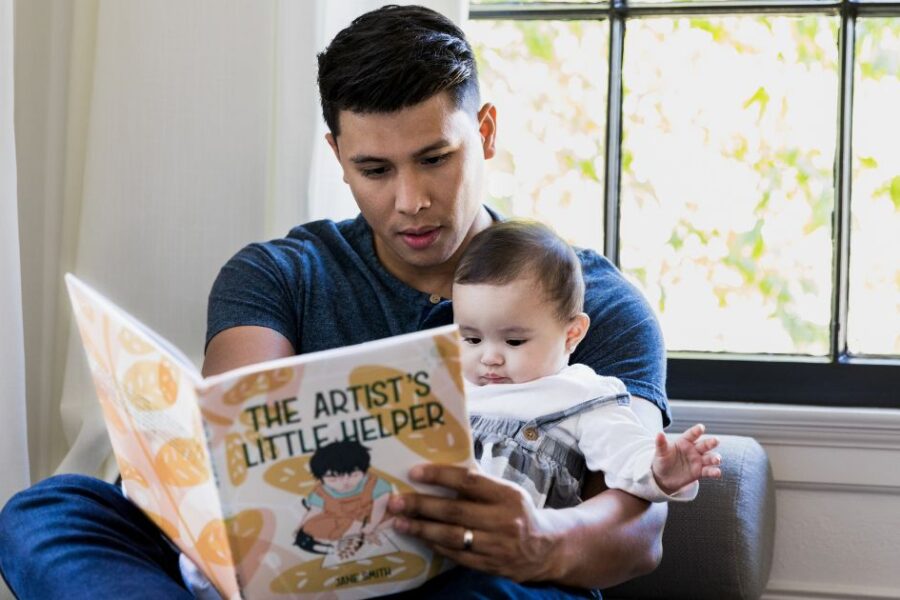As children grow and transition into young adulthood, acquiring essential life skills is crucial for their personal development and success. These skills empower kids, including those with disabilities, to become independent, responsible, and confident individuals, capable of navigating the challenges of life with resilience. It’s essential to recognize that every child’s journey is unique, and some may require more time or support to master certain skills. In this blog post, we’ll outline important life skills that every kid should ideally possess by the ages of 5, 10, 15, 18, and 20, understanding that the timing and progress may vary for children with disabilities. Our goal is to celebrate the progress and accomplishments of all children, ensuring they are on a path towards a fulfilling and purposeful future, no matter their individual pace.
Skills Your 5 Year Old Should Have
At this age, children are like sponges, absorbing information and developing foundational skills that will serve as building blocks for their future growth and development. By focusing on these ten essential life skills, parents and caregivers provide a strong foundation for a 5-year-old to explore the world with confidence and curiosity.
- Basic Communication: Encourage clear and respectful communication, both in expressing needs and listening to others.
- Personal Hygiene: Teach them about proper handwashing, brushing teeth, and personal grooming.
- Dressing Independently: Help them learn to dress themselves, including putting on shoes and zipping up jackets.
- Tidying Up: Instill the habit of tidying up toys and belongings after playtime.
- Sharing and Taking Turns: Promote sharing and taking turns during play to develop social skills.
- Identifying Emotions: Teach them to recognize and express their emotions in a healthy way.
- Basic Counting and Math Concepts: Introduce counting and basic math concepts through fun activities.
- Safety Awareness: Teach them about road safety, stranger danger, and staying safe in various situations.
- Following Simple Instructions: Encourage them to follow simple instructions and routines.
- Creativity and Imagination: Foster creativity and imagination through storytelling, drawing, and pretend play.
Skills Kids Should Know By Age 10:
- Basic Money Management: Teach kids about saving, budgeting, and spending wisely. Introduce them to the concept of money and the importance of being responsible with finances.
- Basic Cooking and Nutrition: Encourage kids to help in the kitchen and learn simple cooking techniques. Teach them about balanced nutrition and making healthy food choices.
- Time Management: Help children manage their time effectively, balancing schoolwork, extracurricular activities, and playtime.
- Personal Hygiene: Instill good hygiene habits, including proper handwashing, dental care, and personal grooming.
- Basic Chores and Responsibility: Assign age-appropriate chores to teach responsibility and the value of contributing to the household.
- Basic Home Repairs: Teach kids simple home repairs like fixing a leaky faucet or changing a light bulb.
- Decision Making: Encourage them to make age-appropriate decisions independently, fostering critical thinking skills.
- Conflict Resolution: Help them develop effective conflict resolution strategies to handle disagreements with friends and family.
- Mindfulness and Relaxation Techniques: Introduce mindfulness and relaxation exercises to manage stress and promote well-being.
- Appreciation for Nature: Instill a love for nature and the environment, promoting outdoor exploration and understanding ecological responsibility.
Skills Kids Should Know By Age 15:
- Effective Communication: Encourage open and respectful communication, both in person and online, to build strong relationships.
- Digital Literacy and Online Safety: Teach kids about responsible internet use and how to protect themselves from online risks.
- Critical Thinking and Problem-Solving: Nurture critical thinking skills, helping them analyze situations and make informed decisions.
- Emotional Intelligence: Help kids understand and manage their emotions, as well as empathize with others.
- Resilience and Coping Skills: Equip them with coping strategies to handle stress and adversity.
- Organization Skills: Teach them how to organize their time, belongings, and responsibilities effectively.
- Basic Sewing and Mending: Introduce basic sewing skills to repair clothes and belongings.
- Civic Engagement: Encourage involvement in community service and understanding the importance of giving back.
- Healthy Relationships: Discuss healthy boundaries and communication in friendships and romantic relationships.
- Digital Etiquette and Responsible Social Media Use: Educate them about online etiquette and responsible social media behavior.
Skills Kids Should Know By Age 18:
- Goal Setting and Planning: Teach kids to set goals and create plans to achieve them, both academically and personally.
- Resume Writing and Interview Skills: Prepare them for job applications and interviews with valuable career skills.
- Financial Independence: Educate them on managing bank accounts, credit, and understanding financial responsibilities.
- Driving Skills and Road Safety: If applicable, ensure they are confident and safe drivers. Heck, everyone who has a license should know how to change a tire, too. Boy or girl.
- Basic First Aid and Health Awareness: Teach them essential first aid techniques and how to prioritize health and well-being.
- Cooking Balanced Meals: Ensure they can plan and prepare nutritious meals independently.
- Financial Planning: Teach them about investments, saving for the future, and long-term financial planning.
- Crisis Management: Help them develop problem-solving skills to manage unexpected situations effectively.
- Personal Safety and Self-Defense: Provide them with self-defense techniques and knowledge about personal safety.
- Global Awareness: Encourage them to be informed about global issues and cultivate empathy for people from diverse backgrounds.
Skills Kids Should Know By Age 20:
- College and Career Readiness: Prepare them for college or the workforce, including applications and interviews.
- Conflict Resolution: Teach them constructive ways to resolve conflicts in various settings.
- Networking and Social Skills: Encourage networking and building social connections to support their personal and professional growth.
- Independent Living Skills: Equip them with skills needed for independent living, including meal planning, laundry, and basic household maintenance.
- Self-Advocacy: Teach them to advocate for themselves and their needs, ensuring they can speak up confidently.
- Networking Skills: Teach them the art of networking to expand their social and professional circles.
- Entrepreneurial Mindset: Encourage creativity and a growth mindset, inspiring entrepreneurship and innovation.
- Mental Health Awareness: Educate them about mental health, self-care, and the importance of seeking help when needed.
- Negotiation Skills: Help them learn negotiation techniques in personal and professional situations.
- Cultural Awareness: Promote understanding and appreciation of different cultures and traditions.
In conclusion, building a well-rounded skill set for kids requires a comprehensive approach that includes various aspects of personal development. From practical abilities like home repairs and cooking to essential traits like empathy and mindfulness, each skill contributes to their growth and adaptability. By focusing on these life skills at different stages of their development, we set the stage for children to flourish and become responsible, confident, and compassionate individuals in their personal and professional lives.








Leave a Comment